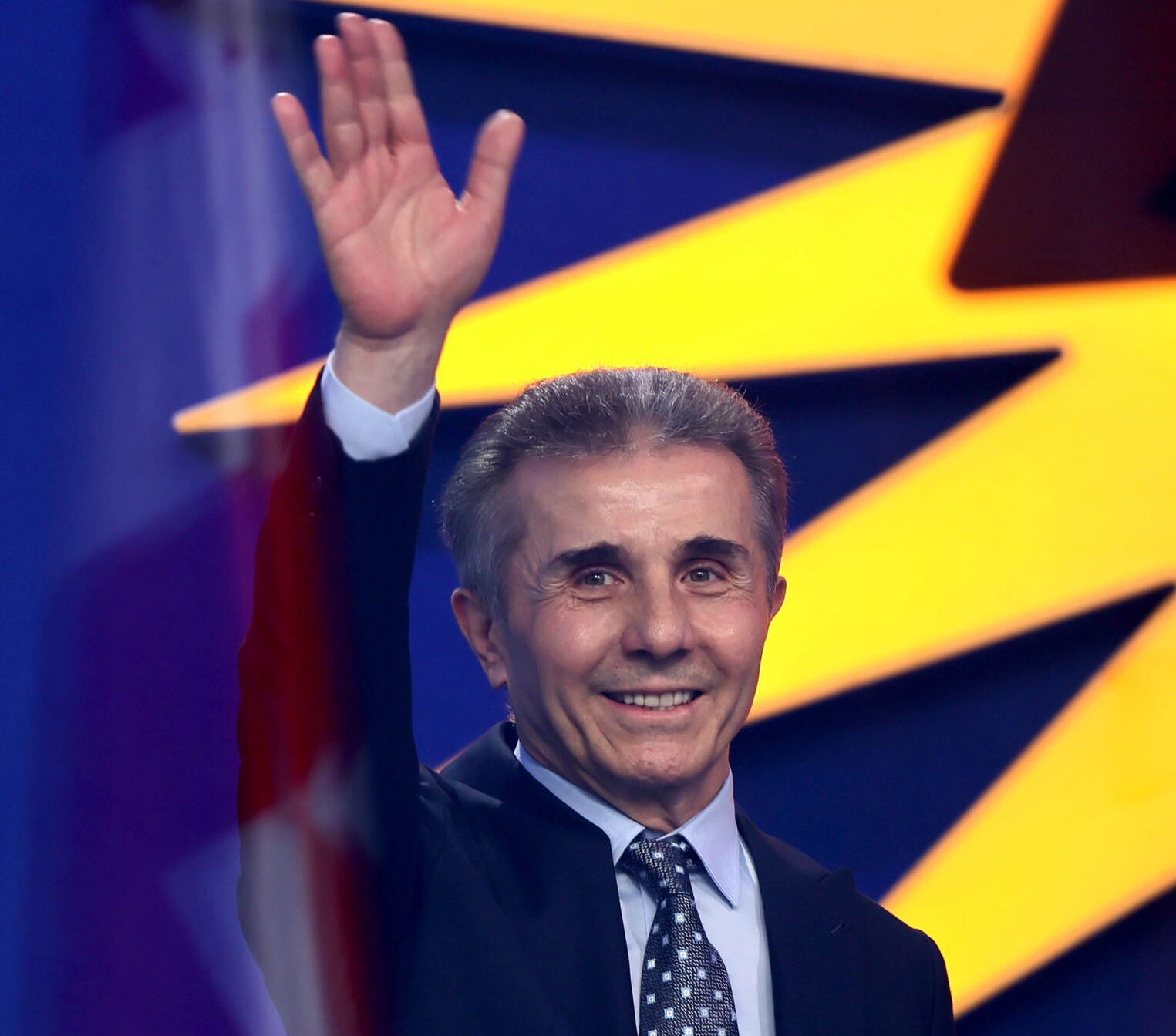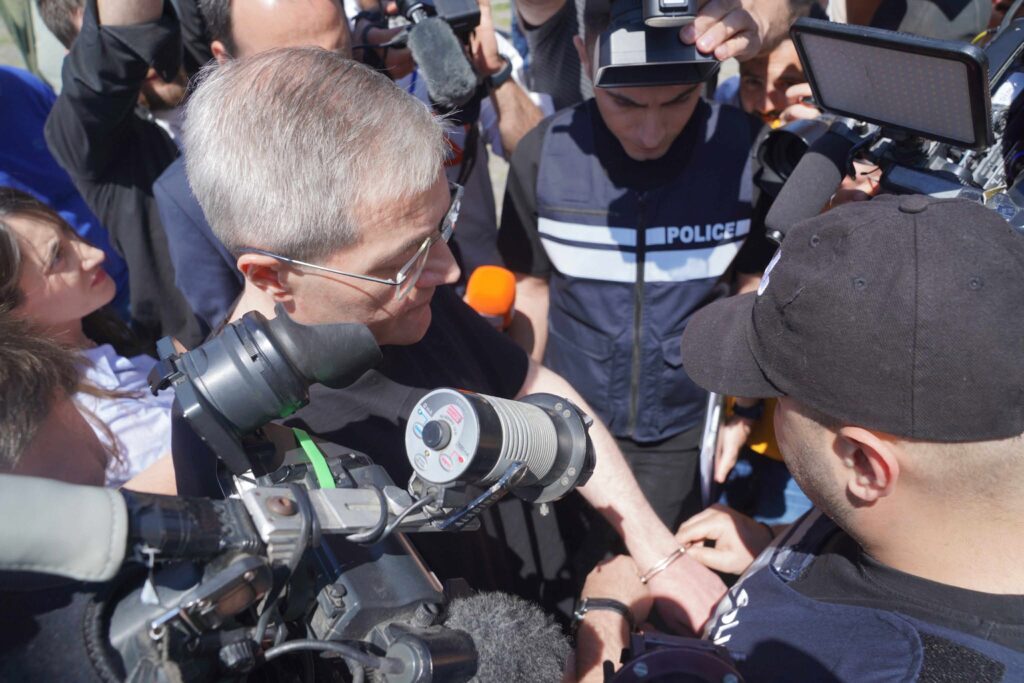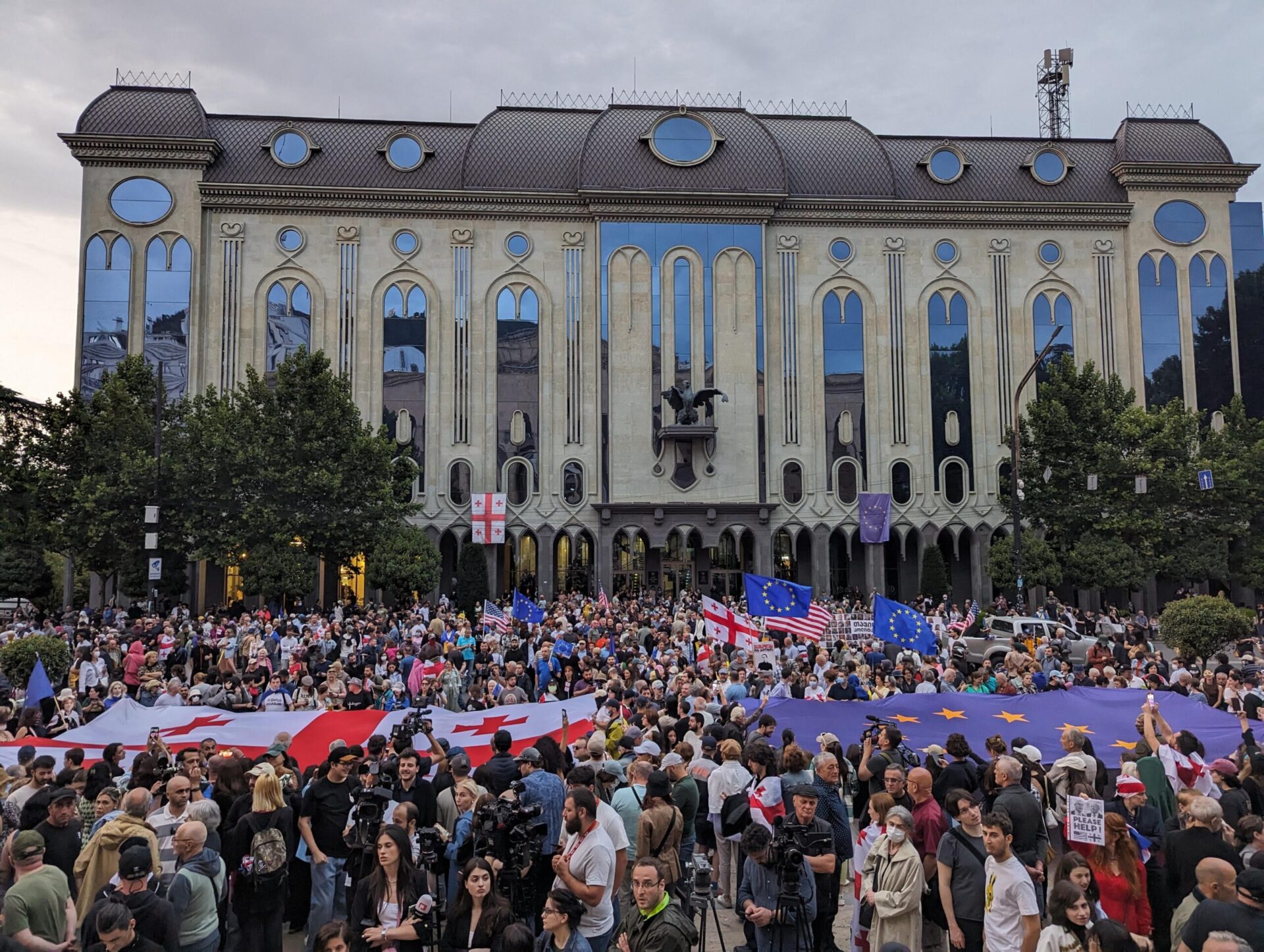
Georgia’s Ruling Elite Prepares for Complete Capitulation to Russia
Georgia’s Ruling Elite Prepares for Complete Capitulation to Russia
Executive Summary:
- Bidzina Ivanishvili, the informal leader of Georgia, made a recent statement promising an apology to puppet regime of so-called South Ossetia controlled by Russiafor the war in 2008, placing the blame for Russia’s war on Georgia itself.
- The Georgian opposition and general public assessed Ivanishvili’s statements as a betrayal. They fear that if Ivanishvili follows through on these promises, there may be little legal basis for restoring Georgia’s territorial integrity.
- Ivanishvili seems ripe for announcing complete capitulation to Moscow. The intention to apologize to the Ossetians means an apology to the Kremlin and a denial of the Russian occupation of Georgian territory.
On September 14, Bidzina Ivanishvili, former prime minister and the honorary chairman of the ruling Georgian Dream party, made a scandalous statement at a pre-election public event in the city of Gori. He stated, “Immediately after the October 26 elections, we will find it in ourselves to apologize that acting upon orders, the treasonous ‘National Movement’ put our Ossetian sisters and brothers up in flames.” This was in reference to Russia’s invasion of Georgia in 2008 (Facebook.com/GeorgianDreamOfficial, September 14). It is unclear whether Georgian Dream plans to verbally ask for forgiveness from their “Ossetian sisters and brothers” or if they intend to accept some kind of resolution. Ivanishvili also threatened that after the election, he would expose all those who ordered this war, hinting at Western countries. With this, Ivanishvili completely ignored Russia’s guilt in inciting the war. In 2012, Russian President Vladimir Putin himself admitted that Russia, under his leadership, had prepared in advance for war with Georgia and, for this purpose, even armed and trained Ossetian militant gangs (see EDM, August 9, 2012; Mtavari.tv, August 9, 2021). Ivanishvili’s clear loyalty to the Kremlin will significantly affect how the Georgian population views not only his leadership but also Georgian Dream’s hold on power leading up to the October parliamentary elections.
Ivanishvili’s words essentially contradicted the International Criminal Court’s 2022 decision that Russia and representatives of the puppet regime of South Ossetia were at fault for this atrocity. Moreover, the court issued an arrest warrant for three representatives of so-called South Ossetian regime. The charges focus specifically on “unlawful confinement, torture and ill-treatment, hostage-taking, and subsequent unlawful transfer of ethnic Georgian civilians in the context of an occupation by the Russian Federation” (Icc-cpi.int, December 10, 2022).
With his statements, Ivanishvili attempted to present Russia’s five-day war against Georgia as between Georgia and the puppet regimes in South Ossetia and Abkhazia, rather than between Tbilisi and the actual aggressor, Moscow. Ivanishvili accused the West of inciting this war and named the former ruling party, the United National Movement (UNM) led by former President Mikheil Saakashvili, as the perpetrator. One of the first to respond to Ivanishvili’s statement was Saakashvili himself. He wrote via social media, “Ivanishvili has given the green light to international recognition of the independence of South Ossetia and Abkhazia and is most likely preparing for such recognition himself” (Facebook.com/SaakashviliMikheil, September 16). The former Georgian president believes that Ivanishvili may take such a step before the elections, thereby guaranteeing himself asylum in Moscow in the event of a defeat.
Ivanishvili’s statements bewildered not only the opposition but also the general public, who assessed it as a betrayal of Georgia (TVFormula, September 16). Local observers are worried that if Ivanishvili follows through on these promises, there may not be a future legal basis for restoring Georgia’s territorial integrity. If the Georgian state takes the blame and apologizes for a war that Russia started, Tbilisi will assume the guilt for the bloody events of 2008 and could lose its claim over the occupied territory. Georgian bloggers have already written, “This is the only case in world history when a country blames itself for being attacked” (Ekhokavkaza.com, September 16). The leaders of UNM stated, “The Georgian people do not apologize to the enemy” (Interpressnews.ge, September 16).
Due to Ivanishvili’s statements, Georgian Dream has suffered harsh responses of the families of those servicemen killed in 2008. The wife of national hero Giorgi Antsukhelidze, whom Ossetians and Russian occupiers tortured, responded to the statement and published a photo on Facebook showing the torture her husband endured with the hashtag “#SorryGiorgi” (Facebook.com/maka.chikviladze, September 15). In addition, a campaign has swept across the country with the sentiment that “we will not ask for forgiveness from Russia and murderers” (Civil.ge/archives, September 16).
Ivanishvili should have known in advance that such a statement would provoke a negative response from society and damage the ruling elite’s ratings in the run-up to the elections. It remains unclear why he made this statement in the city that suffered the most from the military aggression in 2008. These choices indicate that this statement was intended not for a domestic audience but for the Kremlin (TVFormula, September 16).
Some evidence suggests that Ivanishvili did not run his statements past the ruling party in advance, as other party leaders have been forced to unconvincingly explain Ivanishvili’s words to the public. Georgian Dream suddenly found itself under such strong moral pressure from the Georgian people that it damaged its reputation even among its supporters. Ironically, Ivanishvili surpassed even the radical pro-Russian groups with such an open anti-state and pro-Kremlin narrative. The Alt Info television company, whose founders also lead the Conservative Movement/Alt-Info party, which promotes rapprochement with the Kremlin, expressed dissatisfaction with how the ruling elite plan to apologize to the Ossetians. A representative of this radical group asked on air, “Genocide and ethnic cleansing were committed against the Georgians, and why should the Georgians apologize to anyone?” (Alt-Info, September 15).
Moscow praised Ivanishvili for his statement. Margarita Simonyan, editor-in-chief of propaganda outlet RT, wrote on social media, “Georgia is behaving discouragingly adequately. As if it has come out of a long-term binge or psychosis. In general, I warmly welcome you!” (X.com/M_Simonyan, September 14).
Eduard Kokoiti, former leader of the puppet regime of the so-called South Ossetia who led Ossetian gangs in the war against Georgia in 2008, responded to Ivanishvili’s statement. According to him, after the apology, Tbilisi should recognize the independence of South Ossetia and, in addition, transfer additional Georgian territories bordering the Tskhinvali region in the east to Ossetia (T.me/eduardkokoity, September 17).
Ivanishvili’s statement inspired the puppet regime in Abkhazia, which called for a separate apology, although it is unclear why. The Abkhazian Foreign Ministry expressed hope that “Ivanishvili is more sincere in his intentions and will find the right words in relation to the people of Abkhazia” (Ekhokavkaza.com, September 16).
The informal leader of Georgia has jeopardized the territorial integrity and sovereignty of the country to save his power. Seemingly no longer relying on the support of his voters in the October parliamentary elections, Ivanishvili looks set to announce complete capitulation to Moscow. The intention to apologize to the Ossetians means an apology to the Kremlin and, at the same time, a denial of Russia’s occupation of Georgian territory.


